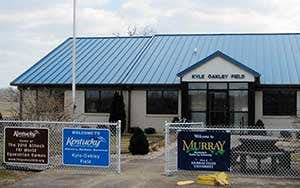
Access by private jets and turboprops enable companies to better serve hard to get to locations bringing money and jobs. Jet Cards have made it easier for companies to use business aviation.

Jet Cards have made travel easier for companies by enabling them to leverage the benefits of private jet travel for employees and customers without the long-term commitment and expense of full or fractional ownership. At the same time Jet Cards provide companies the ability to tightly control budgets and who is flying, as well as ensure providers meet the duty of care standards for sourcing aircraft and flight crew. Now, according to advocacy group No Plane No Gain, two governors in the Southeast have recognized that having their rural general aviation airports upgraded to business aviation standards is a key element in driving increased economic development in these areas.
According to a report from the group, Georgia Gov. Nathan Deal recently proposed $25 million in increased funding for improvements and expansions at 11 rural airports, while Kentucky Gov. Matt Bevin recently allocated $20 million for rural airport improvements, and has proposed an additional $20 million in funding.
“These top state executives are realizing they have to improve their rural airports because they have a direct correlation with economic development,” said Greg Voos, NBAA Southeast regional representative. “If interested companies cannot get in to see the region, that region is not likely to get the benefits of a major new business coming to that area. The top executives in Georgia and Kentucky realize that developing rural airports is a great way to boost rural economies, and for them to make that link publicly is very good news.”
Voos said that in Georgia, much of the proposed funding will go to lengthening many of the runway lengths at these airports to 5,000 feet or more. “That length is really the start of the business aviation standard, because flight departments like to see at least 5,000 feet as a minimum length for safe operations,” he said.
Ret. Col. Steve Parker, Kentucky’s aviation commissioner, said that Bevin has used general aviation airports to build his businesses. Parker noted that at a recent Kentuckians for Better Transportation conference, Bevin said, “the most important mile of asphalt a business leader will see in Kentucky might be that of a general aviation runway.”
Voos said there is a trend developing with increased funding to rural airports as more states are seeking to attract new business and create jobs. “These governors are keenly aware that they have to be able to provide that transportation connectivity via general aviation airports so they are accessible to the large companies that will drive economic growth.”